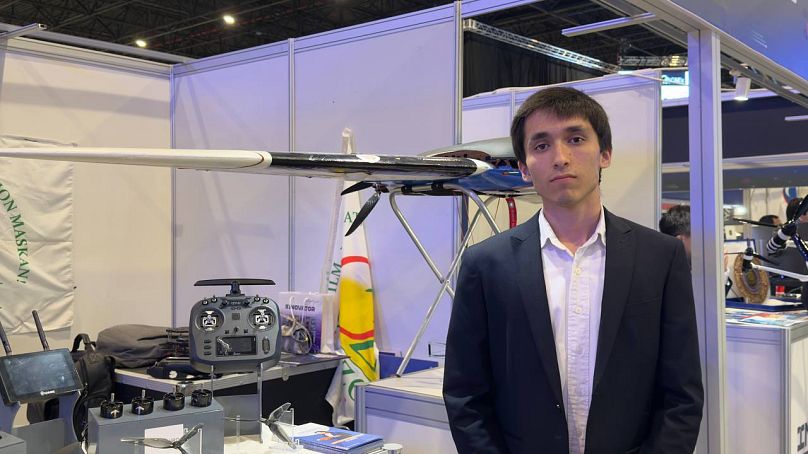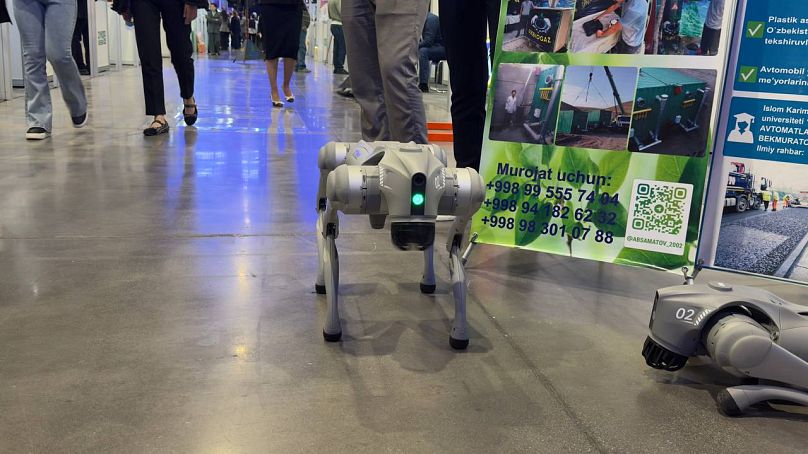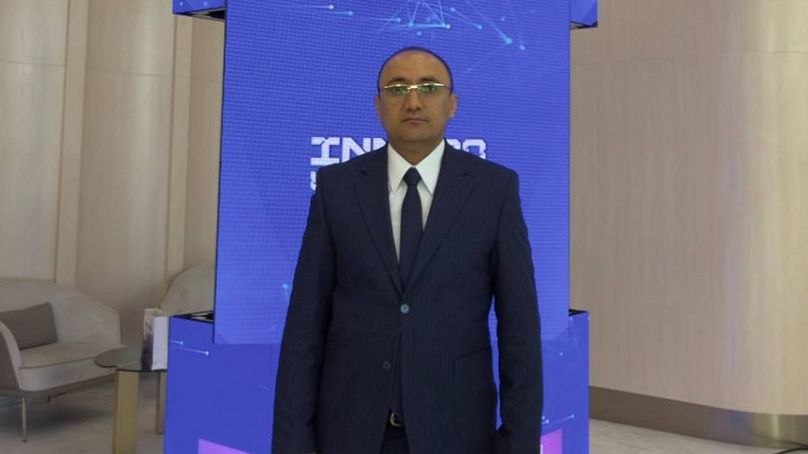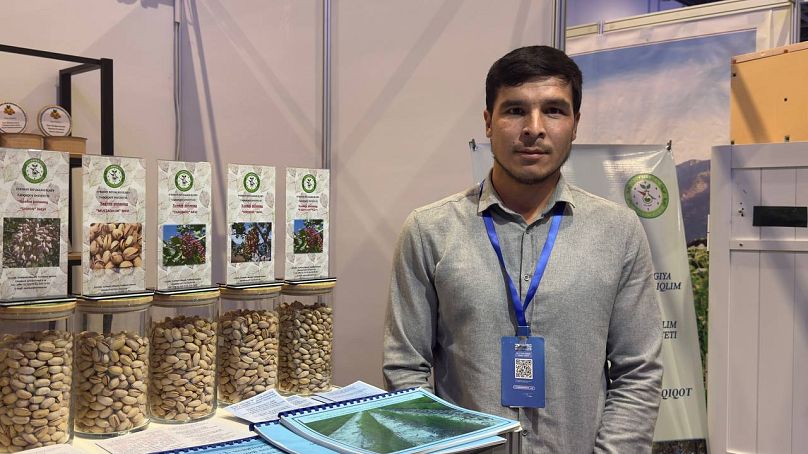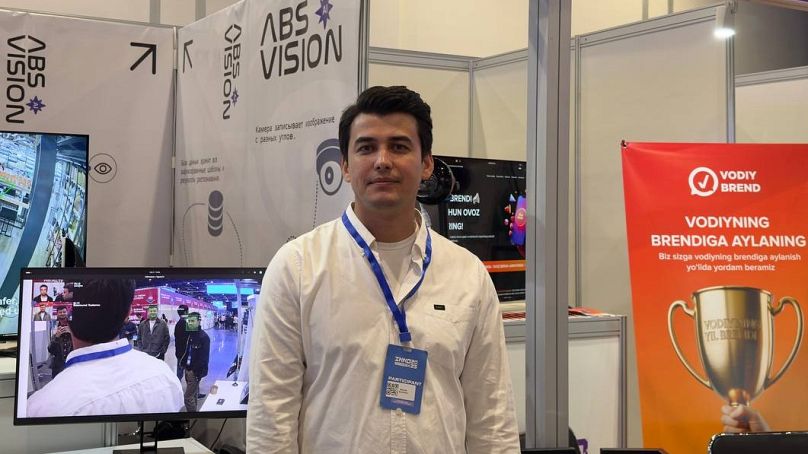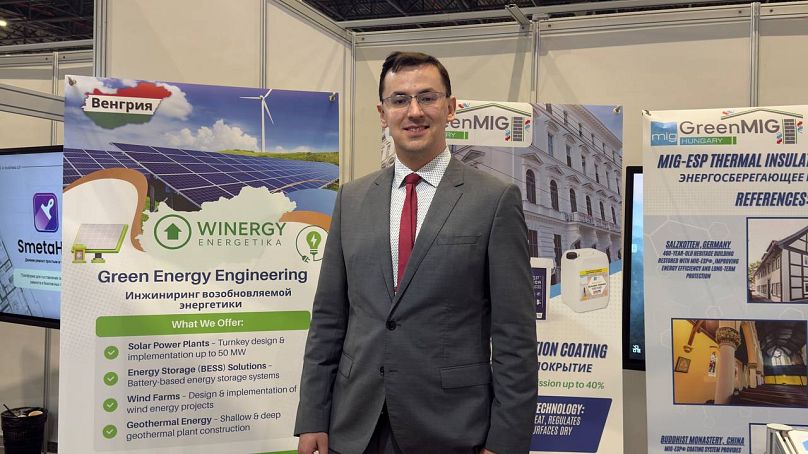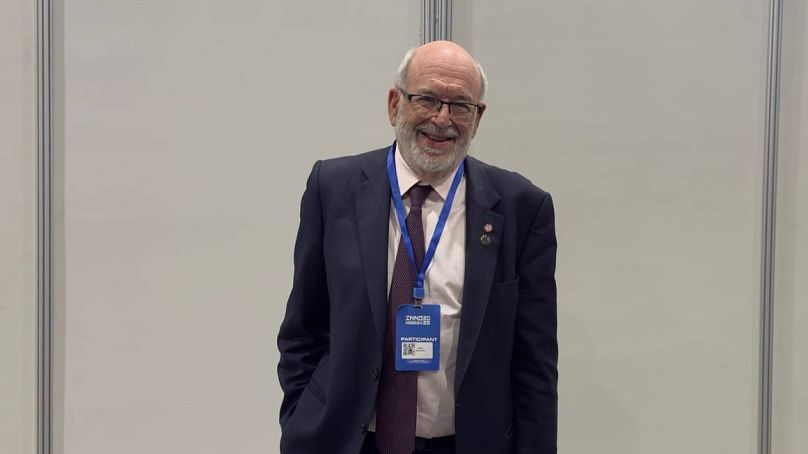InnoWeek 2025 forum in Uzbekistan: When a discovery doesn't stop at the laboratory

When the Nobel Peace Prize laureate, Rik Leemans, stops in front of your invention and says he’s surprised, you know you’ve built something worth talking about.
That happened to a team of young Uzbek engineers this week at InnoWeek 2025 Forum, when Leemans (Nobel Peace Prize 2007) praised their locally produced drones – machines designed, assembled and coded entirely in Uzbekistan.
“It’s all ours,” says Kamronbek Rakhimov, one of the developers. “We built the software, sensors and body from scratch. Nothing imported.”
The drones, once a student experiment, now create 3D landscape maps for farms, river valleys and mountain areas.
“They can cover several hectares in half an hour,” Rakhimov added. “Farmers use them to plan irrigation, and local authorities use the data to monitor soil erosion. It’s real work – not a prototype sitting in a lab".
An event built for ideas
The annual InnoWeek, held in Tashkent since 2018, has become a place where ideas like this find an audience.
What began as a national science fair has turned into a regional hub where scientists, engineers, investors and students meet to test partnerships and pitch their projects.
More than 400 innovations were showcased this year, with participants from about 30 countries – from robotics and clean energy to biotechnology and agriculture.
Asror Norov, acting head of Uzbekistan’s Innovation Agency, says the format is intentionally practical. “We bring researchers, producers and investors together so a discovery doesn’t stop at the laboratory,” he explained.
“For example, during one discussion, Nobel Peace Prize laureate Rik Leemans suggested expanding scientific internship programmes to send more Uzbek researchers to leading universities abroad. That’s exactly the kind of exchange we need”.
From fields to factories
Agriculture remains a central theme of InnoWeek.
At one stand, agricultural researcher Dr Muhammadali Okhunov stands beside rows of young pistachio trees, their roots grafted from wild mountain stock.
He points to the pale-green shoots and explains that the hybrids can survive on half the water used for traditional varieties. “They grow slower but stronger,” he says. “Even when the soil cracks, they keep producing. It’s our answer to drought”.
His team is also experimenting with heat-resistant cotton and salt-tolerant grain, crops bred for Uzbekistan’s increasingly arid climate. “We’re trying to anticipate the next ten years,” Okhunov added. “If we get this right, farmers will stay one step ahead of the weather”.
Across the exhibition hall, the mood shifts from soil to screens. Bahodir Shafoatov, CEO of ABS Vision, demonstrates a real-time camera system designed for factories and logistics companies. Using AI, it recognises faces, monitors working hours and checks whether employees are wearing safety gear – all through ordinary, low-cost cameras.
“It’s not about surveillance,” he said, watching a monitor flash green as a helmeted worker walks past. “It’s about transparency. Managers get accurate data, and employees know the rules are fair.”
The software, developed by a team of five young engineers, is already operating in three large plants and a logistics firm, with trials underway in retail chains.
A few rows away, Hungarian engineer Attila Pusztai is surrounded by miniature models of solar panels and wind turbines connected to sleek battery units – a demo of his company’s hybrid energy solution that stores unused power for later use. The system, which combines solar, wind and geothermal sources, could help remote villages stabilise their electricity supply.
“These are harsh conditions,” he said, glancing at a photo of Uzbekistan’s desert landscapes. “If the model performs here, it can work anywhere. That’s the best testing ground you could ask for”.
Recognition and reflection
Over time, the focus shifted from showing ideas to shaping partnerships.
Among them was Sir Peter Gluckman, President of the International Science Council, who told Euronews that science “is a shared language, the same in New Zealand or Uzbekistan, and events like this show how regions can work together on global challenges from climate change to food security”.
Former UNESCO Director-General Irina Bokova, who has followed Uzbekistan’s reforms in culture and innovation, called the country’s approach “forward-looking.” She pointed to the Bukhara Biennale and creative-economy programs as examples of how heritage and technology can reinforce each other.
“Innovation and tradition are not opposites,” she said. “They can grow together, and that’s what we see here”.
For Norov, that recognition matters but isn’t the final measure of success.
“Of course, we appreciate when international experts notice our progress,” he says, “but we also know there’s still a lot to do. The goal is to give young innovators tools, mentors and opportunities to learn abroad, and then come back to build here”.
When the lights go off in the halls, the conversations don’t stop. For many participants, InnoWeek ends not with applause but with an email, a draft plan, a shared sense that progress here will now depend on what happens between events.
Today


